Student fee fine print: We read it so you don't have to
- Published
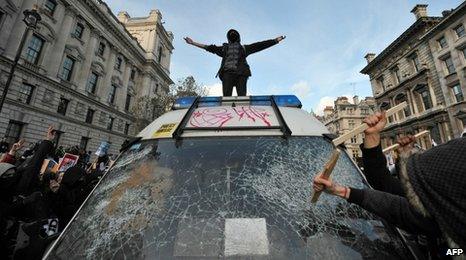
For the second time in two weeks, thousands of students have taken to the streets in central London and around the country.
Beforehand, Deputy Prime Minister Nick Clegg told students: "Listen and look before you march and shout."
Well, don't worry about that now. Newsbeat's listened and looked so you don't have to.
What are students angry about?

Student Ronnie turned up at the demonstrations in central London
Under the government's plans, the maximum amount universities can charge in tuition fees would triple in 2012, from £3,000 to £9,000 a year.
Students say poorer people would be priced out of applying for top courses or would choose not to go to university at all.
Many were also protesting more generally about planned cuts to budgets and resources for post-16 education.
Are government plans "fairer"?
The deputy prime minister told Newsbeat: "All graduates, after they leave university, will pay less upfront than they do at the moment."
The truth is that they'll pay less monthly, but they'll keep paying out for far longer.
Under the current system, students only start paying off their debt once they've left university and once they've started earning more than £15,000 a year.
Then, £1 in every £9 of earnings over £15,000 goes towards the student loan.
Any loan that remains unpaid after 25 years is written off.
Under the planned system, students pay nothing back until they earn £21,000.
Then, one pound in every nine pound of earnings over £21,000 goes towards the student loan.
The loan would not be written off until it was left unpaid for 30 years.
There's a plan to charge a higher rate of interest in future too.
Because the fees would be far higher, students argue it's a much longer-term debt that would stay with them until middle age.
Why are students targeting Nick Clegg in particular?
A lot of students say they voted for Nick Clegg's Liberal Democrats because they made promises to scrap tuition fees before the Election.

Student Jake demonstrated with an anti-Conservative placard
Nick Clegg told Newsbeat: "I hugely regret, in politics and in life, making a promise and then finding I can't deliver on it," adding "the fact is, we just didn't win the General Election."
The Liberal Democrats are now in power but jointly, in a coalition with David Cameron's bigger Conservative party.
James, on Newsbeat's Facebook page, asked how the Lib Dem leader could "look at yourself in the mirror knowing that you've sold a generation down the river" over higher fees.
But Nick Clegg says, "this is what coalition means. Both partners having to make compromises."
He adds: "It is not my party's policy, but it is the best policy given the choices we face."
The Lib Dem leadership also says it's "no longer feasible" to promise tuition fee cuts, given the problems facing the economy.
- Published25 November 2010
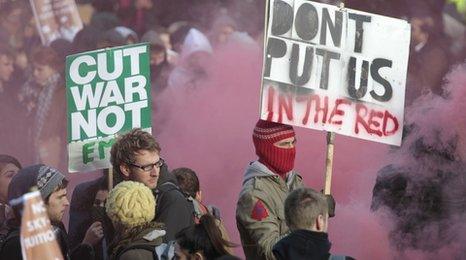
- Published24 November 2010
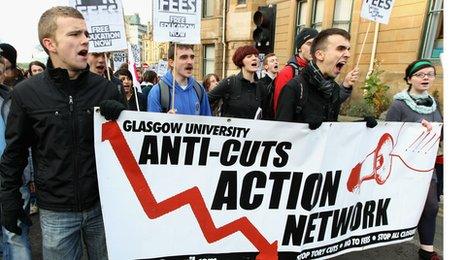
- Published10 November 2010
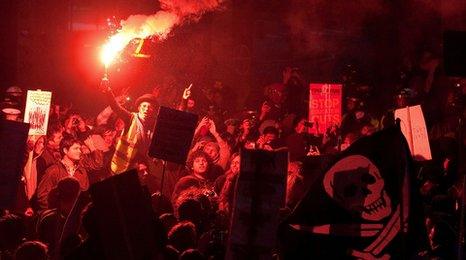
- Published12 October 2010
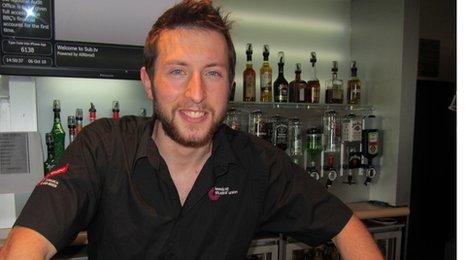
- Published19 August 2010
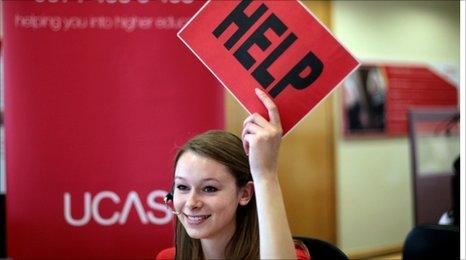
- Published13 August 2010
